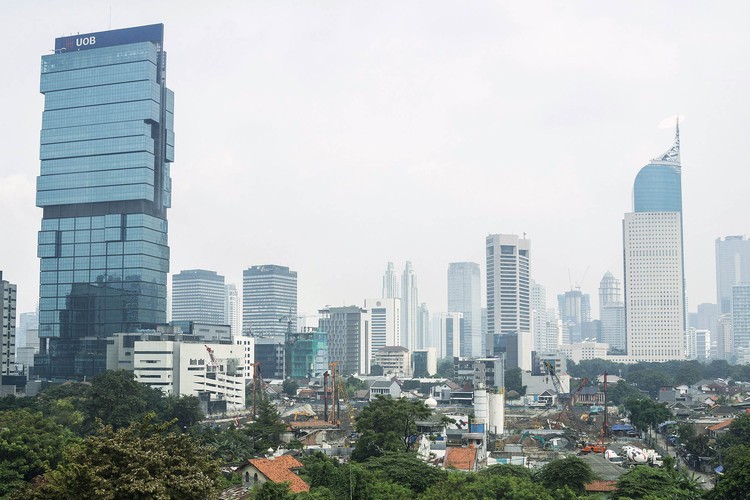Popular Reads
Top Results
Can't find what you're looking for?
View all search resultsPopular Reads
Top Results
Can't find what you're looking for?
View all search resultsIncome gap expected to widen in economic crisis
There may be a "more polarized society which could have significant social and economic implications”.
Change text size
Gift Premium Articles
to Anyone
T
he economic crisis unleashed by the coronavirus pandemic will deepen the income gap as some sectors and income groups may recover sooner than others, economists have said, describing this phenomenon as a “K-shaped recovery”.
A K-shaped recovery highlights the divergent experiences of individuals during the pandemic, in which some workers are able to work from home and continue with their jobs, while others do not have such privileges, said Mandiri Institute head Teguh Yudo Wicaksono.
“The big issue going forward is income divergence as those with the highest income may not be affected greatly by the pandemic, while those with lower and middle incomes may experience job losses and pay cuts,” he told The Jakarta Post in a press briefing on Thursday.
As a result, there may be a "more polarized society, which could have significant social and economic implications”, he went on to say. It will be crucial to bring the pandemic under control to have “a full and whole economic recovery”.
Indonesia implemented large-scale social restrictions (PSBB) in the second quarter this year as it called for people to work from home. The economy is expected to contract for the first time since the 1998 Asian financial crisis as the government expects the economy to shrink by 0.6 percent to 1.7 percent this year.
The economy shrank by 5.32 percent in the second quarter, but some sectors including information and communications technology (ICT), agriculture and financial sectors managed to record growth, while others including transportation and accommodations declined significantly.
The K-shaped recovery theory has gained traction in recent months to explain how things will get better for the haves and worse for the have-nots, as well as to explain industry trends, according to several economists.
The Gini ratio, which reflects inequality, rose at the start of the outbreak in March to 0.381, from 0.380 in September last year, as the gap between the haves and the haves-not slightly widened amid rising poverty levels and job losses. A Gini ratio of 0 reflects perfect equality while 1 expresses maximal inequality.
Some economic sectors that employ more high-skilled workers including health care and ICT will recover much sooner compared with economic sectors that employ low-skilled workers, said University of Indonesia rector Ari Kuncoro.
“The consequence is that there will be a deepening income gap between white-collar workers and informal workers such as those working in restaurants, hospitality or transportation businesses,” he told the Post.
“The key to solving the economic woes will be to provide vaccines so that people’s confidence in the economy will return.”
The government has rolled out a Rp 695.2 trillion (US$46 billion) stimulus to support the economy, including by providing social safety nets for low-income families.
Despite the threat of economic contraction and a K-shaped recovery, Indonesia has significant reasons to expect a return to full economic growth, said Bank Mandiri chief economist Andry Asmoro.
Some positive factors include the government’s stimulus, ample global liquidity, low interest rates and a huge demand for goods and services pent up by the pandemic, which all could stimulate economic recovery, he went on to say.
“Getting the pandemic under control will be the key factor to having a better economic recovery path going forward," said Andry.
Andry said that the economy might shrink by 1 to 2 percent this year, but economic growth may return to pre-pandemic levels by the second quarter next year as the economy may grow by 4.4 percent in 2021.










